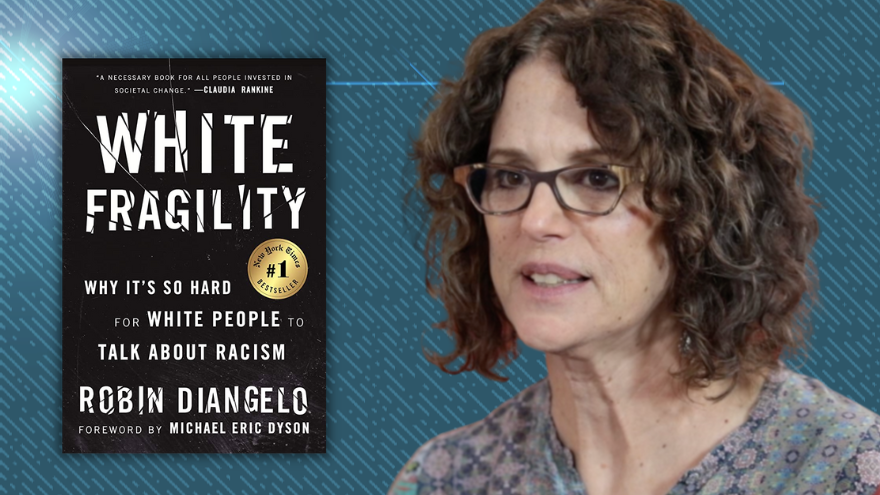Advice given to non-white people by the author of White Fragility has underscored the biased perception of the call for segregation based on racial identity.
“I’m a big believer in affinity space and affinity work,” said academic Robin DiAngelo during a webinar on March 1. "People of color need to get away from White people and have some community with each other.”
The webinar, titled “Racial Justice: The Next Frontier,” was hosted by Berrett-Koehler Publishers.
DiAngelo said white people are uncomfortable with antiracist social justice initiatives. She said willingness to engage in antiracism training and conversations should be a “basic qualification” for employment and that more changes should be implemented in the workplace.
“In 2023, we have to see the ability to engage in these conversations with some nuance and some skill as a basic qualification,” said DiAngelo. “And if you can’t do that, you’re simply not qualified in today’s workplace.”
One comment on clips of the webinar shared by the Foundation Against Intolerance & Racism noted that Dingelo’s comments mirrored those made by cartoonist Scott Adams less than a week before on Feb. 23.
The creator of Dilbert was denounced as a racist after he advised white people to “get the hell away from black people” on his online video podcast. Adams was reacting to a Rasmussen poll that found that 26% of black respondents believed it was either “not ok to be White” and 21% were not sure if it was ok to be White.
Scott said the poll indicated irreparable division between racial groups in America that were likely to further deteriorate.
“Based on the current way things are going, the best advice I would give to white people is to get the hell away from black people,” Adams said in his video. “Just get the [expletive] away. Wherever you have to go, just get away. Because there’s no fixing this. This can’t be fixed.”
“So I don’t think it makes any sense as a white citizen of America to try to help black citizens anymore. It doesn’t make sense,” he continued. “There’s no longer a rational impulse. So I’m going to back off on being helpful to black America because it doesn’t seem like it pays off.”
After Adams’ comments went viral, his cartoon was dropped by a number of nationwide publishers including The Boston Globe, the Los Angles Times, and the Washington Post, as well as Gannett Co. which operates the USA Network and 300 local media outlets across 43 states.
DiAngelo’s comments did not spark the same outrage or have the same professional consequence. Only weeks after the webinar have her comments been noticed and compared to the beliefs of segregationists.
Some, like Darrell B. Harrison, have said the author’s comments were an indication of her own racist thoughts.
"For people like Robin DiAngelo, it’s always other white people who black people need to ‘get away from,’" said Harrison, the Director of Digital platforms at Grace to You Ministries, per Fox News. “DiAngelo is a woke Bull Connor, only instead of dogs and fire hoses, she uses the divisive and factious tenets of critical race theory to keep blacks in their place.”
DiAngelo has previously argued that white people are “racially illiterate” and therefore understand only “simplistic explanations for racial inequality.”
“If I don’t understand racism as a deeply embedded system that I have been shaped by and participate in, my inaction will uphold it,” she wrote in a 2018 opinion piece published by NBC News. “In other words, as long as whiteness remains unnamed it will continue to reproduce racial inequality.”
In addition to White Fragility, DiAngelo is the author of Nice Racism, wherein she argues white progressives cause “racial harm” to people of color even if they do not intend to.
“In the workplace, the classroom, houses of worship, gentrifying neighborhoods, and community groups, Black people do interact with white progressives,” she wrote in an excerpt from her book published in The New Yorker. “We are the ones—with a smile on our faces—who undermine Black people daily in ways both harder to identify and easier to deny.”

